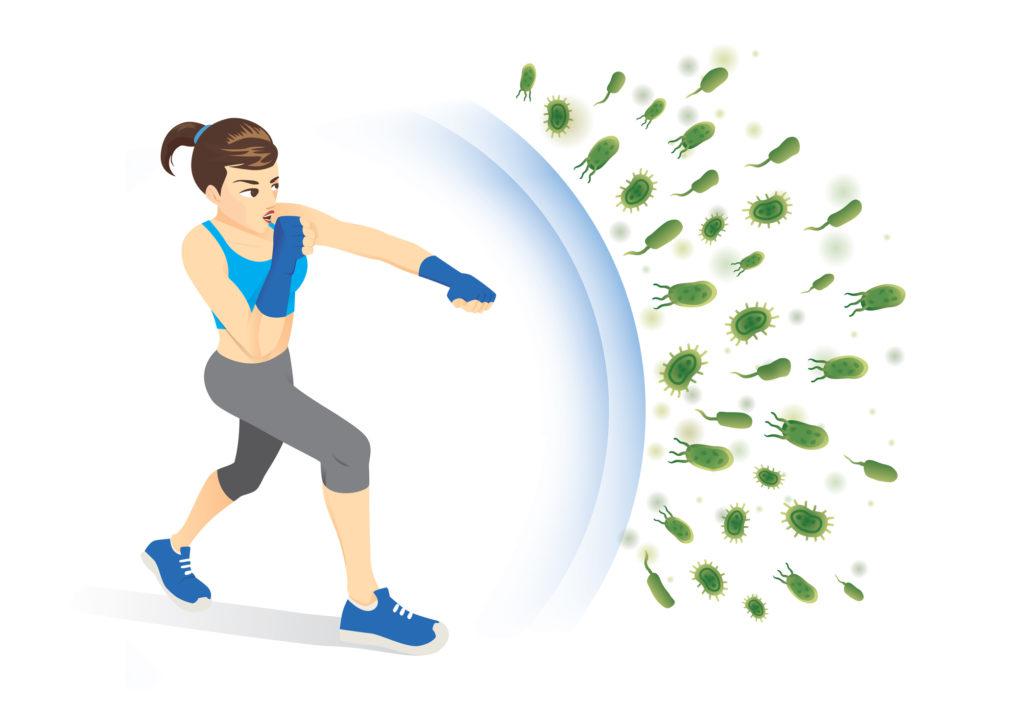Is Stress Bad for You?
Chronic stress depresses the immune system and increases the risk of several types of illnesses. It raises the level of hormones called catecholamines. Being stressed out leads to increased levels of suppressor T cells, which suppress the immune system. When this branch of the immune system is impaired, you are more susceptible to viral illnesses including respiratory conditions like colds, flu, and the novel coronavirus infection. Stress leads to the release of histamine, a molecule involved in allergies. Combat stress with strategies like deep breathing, meditation, exercise, and relaxation.
Do Pets Help Immune System Function?
Companion Animals Are a Boon to Immunity
Results of studies show that pet owners have lower blood pressure and cholesterol levels compared to those who do not own pets. Pet owners had lower total cholesterol and triglycerides compared to non-pet owners. This may translate to better overall heart health and reduced risk of heart disease. Dog owners may enjoy improved heart health in part because they are more likely to engage in physical activity because they walk their dogs regularly. Pet ownership in childhood is linked to decreased susceptibility to allergies.
Do Social Ties Influence Immunity?
Your Social Network Can Make You Stronger
Mounting evidence from many studies suggests loneliness and social isolation are very detrimental to health. In one study, those with the strongest social relationships were most likely to live longer than those with poor social connections. There are lots of ways to develop and strengthen social ties. Pick up the phone and call friends regularly. Make plans to get together in person. Volunteer for a cause you believe in. Join a class or join a group related to an interest or hobby you have. Keep up with old friends and make new ones to strengthen and expand your social circle.
Attitude Is Everything
Be Positive to Boost Immune Response
Expect good things and your immune system will follow. A study of law students found that their immune systems were stronger when they felt optimistic. Make optimism work for you. Try to see the glass as half full, not half empty. Practice gratitude and think of at least three things that you are grateful for every day. Imagine the best outcome for situations, even difficult ones. You may not always be able to control events around you, but you can always decide how to respond to them. Respond with a good attitude to increase the chances of the best outcome and to strengthen your immunity.
Laugh It Up!
Belly Laughs Are Good for You
Can laughter really boost your immune system? Results of some studies suggest it can. In a study of healthy males, watching a funny movie boosted natural killer cell activity while watching an emotionally neutral movie did not boost immune system function. While more research is necessary to establish a conclusive link between laughter and improved immunity, go ahead and have a good chuckle. Belly laughs feel great. They can't hurt and they might help boost your immune system and reduce the likelihood of illness.
What About Antioxidants?
They Protect Your Cells
Antioxidants are compounds in colorful fruits and vegetables that protect against free radicals. Free radicals can damage DNA and other cell components. Fruits and vegetables in a wide array of colors provide the best mix of protective antioxidants to boost overall health and immunity. Eat leafy greens, watermelon, carrots, berries, broccoli, oranges, kiwi, cantaloupe, and other brightly colored produce to give your cells and immune system all the natural protection they need to function at their best. Homemade chicken soup with carrots, celery, and other veggies can also be a boon to your immune system.
Does Vitamin Status Matter?
A Multivitamin May Help
Some experts believe that taking a daily multivitamin can help ensure you're meeting at least your daily minimum requirement for certain nutrients. Vitamins that are critical for immune function include vitamins A, C, D, and E. Zinc, selenium, and magnesium are minerals that your immune system needs to function at its best. These minerals are also critical for the function of many enzyme reactions in the body. Your immune system and body can't function at their best without the basic building blocks they need to work properly.
What About Empty Calories?
Steer Clear of Them
Processed foods including candy, soda, fast food, and snack foods contain empty calories that do not provide your body with vitamins, nutrients, or fiber. They often also contain chemicals and preservatives that are not good for your body. If you eat processed foods and instead of foods in their natural, unprocessed form, your body will be deprived of vitamins and nutrients that it needs to thrive. Ditch processed foods in favor of fruit, vegetables, lean meat, healthy fats, and whole grains to give your body and immune system everything they need to function at their best. Optimize your dietary habits to support your health.
Herb and Supplement Immune Boosters
Healing Plants
Some research has suggested that compounds in herbs and supplements can enhance immunity. Garlic, astragalus, milk thistle, ginseng, green tea, black cumin, and licorice are just a few herbs that have been reported to have immune boosting benefits. Talk to your doctor of pharmacist before including herbs and supplements into your regimen. They may produce side effects, especially when combined with other herbs, supplements, or medications. Probiotics are beneficial strains of bacteria that have also been described as immune boosters. Look for probiotic supplements with lactobacillus and bifidobacterium. Probiotics can also help improve digestive health.
Does Exercise Boost Immunity?
Move Your Body
Exercise has numerous health benefits including protecting you against heart disease, osteoporosis, and even certain types of cancer. Exercise is also an immune booster. To reap maximum benefits, try to be moderately physically active for at least 30 minutes on most days of the week. Walking is one of the simplest ways to exercise. If you're not excited about walking, try yoga, swimming, cycling, or golf. Gardening is also a good way to get some outdoor activity.
Sleep Your Way to a Better Immune System
Make Sleep a Priority
Several studies confirm the link between sleep and a healthy immune system. Most people need between 7 to 9 hours to feel adequately rested. Being well rested improves the function of white blood cells, so you're less likely to get illnesses like respiratory infections, colds, and the flu. Practice good sleep hygiene to optimize sleep. That means waking up and going to bed at the same time every day, even on weekends. Avoid substances that can interfere with sleep, like caffeine and alcohol, for several hours before bedtime. You're more likely to sleep well if your bedroom is cooler. Establish a relaxing evening routine before bedtime. Enjoy a warm bath, relaxing music, or a cup of tea to help you drift off to sleep more easily.
Is It Safe to Drink Alcohol?
It Is Best to Limit It
Alcohol depresses the immune system so it's best to drink it in moderation or not at all. Men may be able to consume up to two alcoholic drinks per day. Women should have no more than one. Whether or not one can safely consume some alcohol has to do with many factors including overall health status, risk factors for disease, and any medications you may be taking. Ask your doctor if it's safe for you to indulge in an occasional alcoholic drink and if so, how much is safe for you to consume.
Nicotine Is Immunosuppressive
A Dangerous Substance
Smoking and nicotine use are bad for the immune system. People who use tobacco are also at increased risk of health problems like lung cancer, asthma, stroke, and heart attack. Any substance that depresses your immune system is not something that you want to use. There are many different strategies to help you quit. Your doctor may recommend nicotine patches, antidepressants, or other treatments to help you stop smoking. Reach out for help if you need it.
Can Handwashing Keep You Healthy?
Frequent handwashing is a simple and effective way to prevent the spread of respiratory infections like colds, flu, coronavirus, diarrheal illnesses, and other infectious conditions. Some germs are easily transmissible from person to person when we come into contact with one another. It's easy to transfer germs from your hands to your nose, eyes, and mouth, if you touch them. This can get you sick. Wash your hands with soap under running water. Scrub the fronts and backs of your hands as well as in between fingers.
Antibacterial soap and hand sanitizer may confer additional protection against microorganisms. Use an alcohol-based hand sanitizer that is at least 60% alcohol for times when you don't have access to soap and water.
Source: www.medicinenet.com
Santegra® products FluGone™ contains vitamin C, zinc, selenium, garlic, and Echinacea extract, Ultivit™ and Ultivit™ Kids contain vitamins A, C, D, E, zinc, selenium, and magnesium, LactoBi and L. Acidophilus contain beneficial bacteria.








